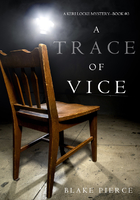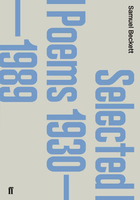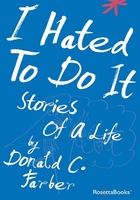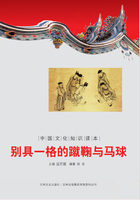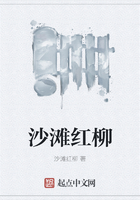During the journey I thought over my errand with misgiving. Now that I was free from the spectacle of Mrs. Strickland's distress I could consider the matter more calmly. I was puzzled by the contradictions that I saw in her behaviour. She was very unhappy, but to excite my sympathy she was able to make a show of her unhappiness. It was evident that she had been prepared to weep, for she had provided herself with a sufficiency of handkerchiefs; I admired her forethought, but in retrospect it made her tears perhaps less moving. I could not decide whether she desired the return of her husband because she loved him, or because she dreaded the tongue of scandal; and I was perturbed by the suspicion that the anguish of love contemned was alloyed in her broken heart with the pangs, sordid to my young mind, of wounded vanity. I had not yet learnt how contradictory is human nature; I did not know how much pose there is in the sincere, how much baseness in the noble, nor how much goodness in the reprobate.
But there was something of an adventure in my trip, and my spirits rose as I approached Paris. I saw myself, too, from the dramatic standpoint, and I was pleased with my role of the trusted friend bringing back the errant husband to his forgiving wife. I made up my mind to see Strickland the following evening, for I felt instinctively that the hour must be chosen with delicacy. An appeal to the emotions is little likely to be effectual before luncheon. My own thoughts were then constantly occupied with love, but I never could imagine connubial bliss till after tea.
I enquired at my hotel for that in which Charles Strickland was living. It was called the Hotel des Belges. But the concierge, somewhat to my surprise, had never heard of it. I had understood from Mrs. Strickland that it was a large and sumptuous place at the back of the Rue de Rivoli. We looked it out in the directory. The only hotel of that name was in the Rue des Moines. The quarter was not fashionable; it was not even respectable. I shook my head.
"I'm sure that's not it," I said.
The concierge shrugged his shoulders. There was no other hotel of that name in Paris. It occurred to me that Strickland had concealed his address, after all. In giving his partner the one I knew he was perhaps playing a trick on him. I do not know why I had an inkling that it would appeal to Strickland's sense of humour to bring a furious stockbroker over to Paris on a fool's errand to an ill-famed house in a mean street. Still, I thought I had better go and see. Next day about six o'clock I took a cab to the Rue des Moines, but dismissed it at the corner, since I preferred to walk to the hotel and look at it before I went in. It was a street of small shops subservient to the needs of poor people, and about the middle of it, on the left as I walked down, was the Hotel des Belges. My own hotel was modest enough, but it was magnificent in comparison with this. It was a tall, shabby building, that cannot have been painted for years, and it had so bedraggled an air that the houses on each side of it looked neat and clean. The dirty windows were all shut. It was not here that Charles Strickland lived in guilty splendour with the unknown charmer for whose sake he had abandoned honour and duty. I was vexed, for I felt that I had been made a fool of, and I nearly turned away without making an enquiry. I went in only to be able to tell Mrs. Strickland that I had done my best.
The door was at the side of a shop. It stood open, and just within was a sign: Bureau au premier. I walked up narrow stairs, and on the landing found a sort of box, glassed in, within which were a desk and a couple of chairs. There was a bench outside, on which it might be presumed the night porter passed uneasy nights. There was no one about, but under an electric bell was written Garcon. I rang, and presently a waiter appeared. He was a young man with furtive eyes and a sullen look. He was in shirt-sleeves and carpet slippers.
I do not know why I made my enquiry as casual as possible. "Does Mr. Strickland live here by any chance?" I asked. "Number thirty-two. On the sixth floor."
I was so surprised that for a moment I did not answer. "Is he in?"
The waiter looked at a board in the bureau. "He hasn't left his key. Go up and you'll see." I thought it as well to put one more question.
"Madame est la?" "Monsieur est seul."
The waiter looked at me suspiciously as I made my way upstairs. They were dark and airless. There was a foul and musty smell. Three flights up a Woman in a dressing-gown, with touzled hair, opened a door and looked at me silently as I passed. At length I reached the sixth floor, and knocked at the door numbered thirty-two. There was a sound within, and the door was partly opened. Charles Strickland stood before me. He uttered not a word. He evidently did not know me.
I told him my name. I tried my best to assume an airy manner.
"You don't remember me. I had the pleasure of dining with you last July."
"Come in," he said cheerily. "I'm delighted to see you. Take a pew." I entered. It was a very small room, overcrowded with furniture of the style which the French know as Louis Philippe. There was a large wooden bedstead on which was a billowing red eiderdown, and there was a large wardrobe, a round table, a very small washstand, and two stuffed chairs covered with red rep. Everything was dirty and shabby. There was no sign of the abandoned luxury that Colonel MacAndrew had so confidently described. Strickland threw on the floor the clothes that burdened one of the chairs, and I sat down on it.
"What can I do for you?" he asked.
In that small room he seemed even bigger than I remembered him. He wore an old Norfolk jacket, and he had not shaved for several days. When last I saw him he was spruce enough, but he looked ill at ease: now, untidy and ill-kempt, he looked perfectly at home. I did not know how he would take the remark I had prepared.
"I've come to see you on behalf of your wife."
"I was just going out to have a drink before dinner. You'd better come too. Do you like absinthe?"
"I can drink it." "Come on, then."
He put on a bowler hat much in need of brushing.
"We might dine together. You owe me a dinner, you know."
"Certainly. Are you alone?"
I flattered myself that I had got in that important question very naturally.
"Oh yes. In point of fact I've not spoken to a soul for three days. My French isn't exactly brilliant."
I wondered as I preceded him downstairs what had happened to the little lady in the tea-shop. Had they quarrelled already, or was his infatuation passed? It seemed hardly likely if, as appeared, he had been taking steps for a year to make his desperate plunge. We walked to the Avenue de Clichy, and sat down at one of the tables on the pavement of a large cafe.

